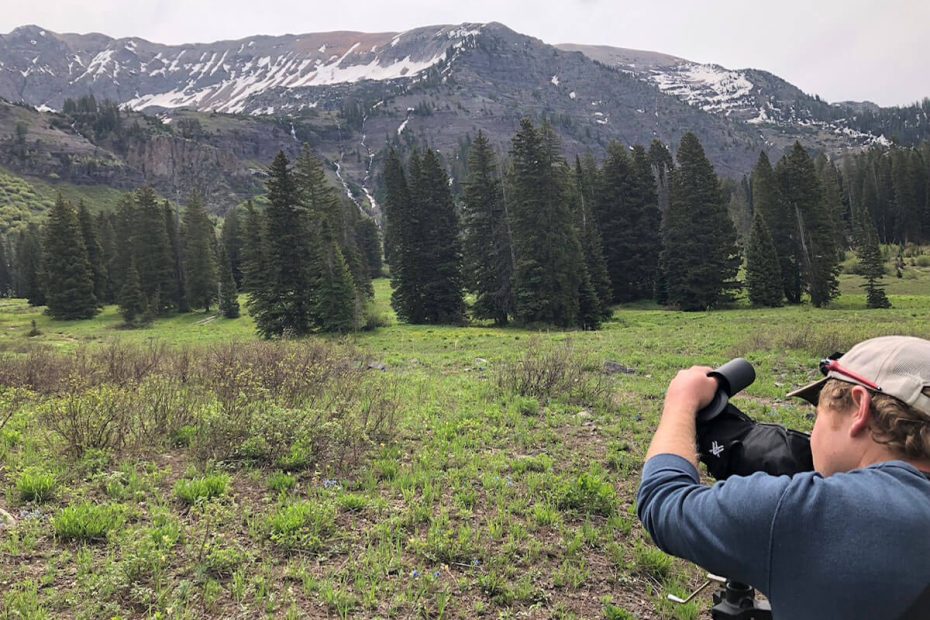The long hot days of summer often have hunters thinking of the cool mornings of fall. The constant heat often has us dwelling on getting out into the changing leaves of fall woods. It might seem that hunting season is too far away to start thinking about, but I can tell you that summer can be one of the most critical times to get busy and prepare for the upcoming season. I have three simple summer scouting tips that will help you feel confident and be more successful during your season.
Do Your Research
Thanks to technology we now have the ability to see our hunting areas in great detail and in different ways than ever before. When you draw a tag or have a hunting area that is a few hours away or even a state away, you can still scout the area very effectively. The most simple and free way to take a look at your hunting area is Google Earth. The free satellite imagery can really help you get a better understanding of the area that you want to hunt. I find that it allows you to have a better understanding of how the animals might move during the hunting season. It also helps you have an understanding of terrain features and landmarks so that when you get your feet on the ground you will be able to scout and hunt more effectively.
Another tool that you can utilize are online forums, love them or hate them, but they can offer some great insight into the hunting area. Usually, hunters that participate in these forums are happy to chat and point you in the right direction. Just remember to take the conversation with a grain of salt and as a wise man told me, “don’t go chasing dead animals”. Meaning, just because a hunter killed an animal in a specific basin or field doesn’t mean that there will be one there this season.

Of course, now we have access to an unlimited amount of state and unit-specific information thanks to hunting apps. I have several that I operate on my phone and GPS, they have been invaluable. But I will say that batteries die and there are few things that are more appreciated when this happens than a paper map and compass. I am not trying to knock these apps, and I use them all throughout the year all over the country, but just remember that everyone that wants to pay the subscription fee has access to the same information that you do. So using these as a supplement instead of the only tool that you use can be a much better idea.
Contact the Biologist
If you can’t get to the area that you hunt and have questions, the local Biologist and Game Managers are an invaluable resource. You will be hunting for 5-10 days, these professionals spend the whole year monitoring the animals in their respective units and they know where and what the animals will be doing at specific times of the year.

I have had several tags that I could not be there to scout in person and called the local biologist. Their information was invaluable and they have saved me several days of trying to figure out where the animals will be and point me in the right direction. Remember they are there for assistance, please do not call a local game manager or biologist and expect them to tell you the exact basin or section that the game is in.
Get Your Feet On The ground

Unfortunately, nothing can beat the actual method of good old fashioned scouting. Until you actually get your feet on the ground and start to look at some of the terrain features and landmarks that you have seen in your research will you get a feeling of the unit and the animals in it. If you have a tag out of state or in an area that you are unfamiliar with, I would highly suggest a pre-season trip to take a look around. This does not have to be two separate trips, I know that it isn’t always possible to take time off of work to go check a hunting area out, but it can be just as simple as getting out to your area a couple of days before the season. This can save you several days of wandering around trying to figure the area out. This little head start will allow you to start hunting on opening day, not continue to try and figure out the unit.
I know that as a hunter we often look at how we hunt during the season as the test of success or failure. But, it cannot be stressed enough that the knowledge of the hunt area is almost as important as preparing for the hunt itself. If you follow just one or two of these tips in preparation, I will bet that you have an overall better hunting experience. You will move the needle toward you having a successful hunt and taking an animal that you have worked hard for.

